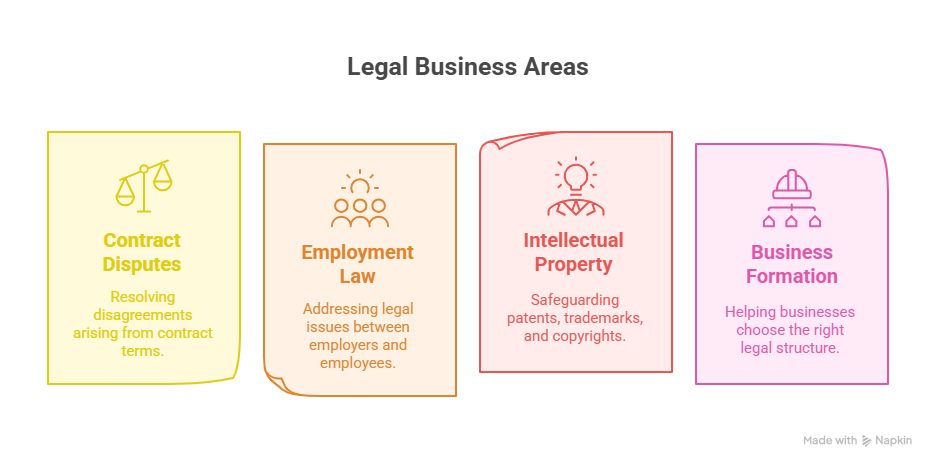Nearly 20% of small businesses face legal issues annually, ranging from contract disputes to employment law concerns, according to the Small Business Administration. This statistic underscores the importance of having the right legal guidance to navigate these challenges.
Understanding legal structures and compliance requirements is crucial for protecting your enterprise. Whether you’re structuring your company as a sole proprietorship, partnership, or corporation, the right legal advice can safeguard your interests and support your growth.
Finding the right legal help doesn’t have to be daunting. Many resources are available to provide legal advice for small businesses, from local attorneys specializing in small business law to online platforms offering legal guidance tailored to your business needs.
Understanding Business Structures and Formation
The legal structure of a small business is foundational to its success and compliance with the law. Choosing the right business entity is crucial for small business legal services and long-term viability.
Choosing the Right Legal Entity
Small business owners have several options when it comes to legal entities, including sole proprietorships, LLCs, and corporations. Each has its advantages and disadvantages.
Sole Proprietorships vs. LLCs vs. Corporations
Sole proprietorships are simple to establish but offer no personal liability protection. LLCs provide liability protection and flexibility in ownership structure. Corporations offer strong liability protection but are more complex to establish and maintain.
Tax Implications of Each Structure
The tax implications vary significantly between these structures. For instance, corporations are subject to double taxation, whereas LLCs can be taxed as pass-through entities. Consulting a small business lawyer can help navigate these complexities.
Registration and Licensing Requirements
Regardless of the business structure, registration and licensing are critical. This includes obtaining federal, state, and local permits, as well as complying with industry-specific regulations.
Federal, State, and Local Permits
Businesses must secure various permits and licenses to operate legally. This can include sales tax permits, zoning permits, and health department permits.
Industry-Specific Regulations
Certain industries are subject to additional regulations. For example, businesses handling food or providing professional services may require special licenses. Understanding these requirements is key to avoiding legal issues and ensuring compliance with small business legal questions and regulations.
Essential Small Business Legal Help Resources
As a small business owner, navigating the complex world of legal requirements can be daunting, but with the right resources, you can ensure compliance and protect your business. Small businesses often require legal support to address various issues, from formation to compliance and dispute resolution.
When to Hire a Small Business Attorney
Knowing when to seek professional legal help is crucial. A small business attorney can provide guidance on legal matters that are beyond your expertise or require specialized knowledge.
Legal Issues Requiring Professional Assistance
Some legal issues that necessitate hiring an attorney include:
- Contract disputes
- Employment law issues
- Intellectual property protection
- Business formation and structure

Finding the Right Small Business Lawyer
To find the right lawyer, consider their experience in small business legal consultation, their reputation, and their ability to understand your business needs.
Cost-Effective Legal Services for Small Businesses
Not all legal services have to break the bank. There are cost-effective options available that can provide the legal support you need without excessive costs.
Online Legal Resources and Templates
Utilizing online legal resources and templates can be a cost-effective way to handle routine legal matters, such as drafting contracts or understanding legal requirements.
Legal Clinics and Pro Bono Services
Some law firms and legal organizations offer free or low-cost legal clinics and pro bono services for small businesses that cannot afford full-priced legal services.
Critical Legal Documents and Compliance
Understanding the critical legal documents required for your small business is essential for its success and longevity. As a small business owner, having the right legal documents in place is vital for protecting your business and ensuring compliance with the law.
Contracts and Agreements Every Business Needs
Contracts and agreements are fundamental to any business operation. They outline the terms and conditions of various business relationships, providing clarity and protection for all parties involved. Client and vendor contracts are particularly crucial as they define the scope of work, payment terms, and responsibilities.
Client and Vendor Contracts
Client contracts should clearly outline the services to be provided, the timeline, and the payment terms. Vendor contracts, on the other hand, should specify the goods or services to be supplied, delivery schedules, and payment details.
Intellectual Property Protection
Protecting your business’s intellectual property is also vital. This includes trademarks, copyrights, and patents. Registering your intellectual property can prevent unauthorized use and provide legal recourse in case of infringement.
Tax and Employment Law Compliance
Compliance with tax and employment laws is another critical aspect of running a small business. This includes understanding and adhering to regulations related to employee classification, labor laws, and risk management.
Employee Classification and Labor Laws
Correctly classifying employees is essential to comply with labor laws and avoid potential penalties. Small businesses must understand the differences between employees and independent contractors.
Risk Management and Insurance Requirements
Implementing effective risk management strategies and having the necessary insurance coverage can protect your business from unforeseen events.
By prioritizing these critical legal documents and compliance areas, small business owners can ensure they are well-protected and positioned for long-term success. Seeking small business legal help and utilizing small business legal services can provide valuable guidance and support.
Conclusion: Protecting Your Business’s Future
As a small business owner, navigating the complex world of legal requirements can be daunting. However, by understanding the legal essentials outlined in this article, you can better protect your business’s future. Seeking the advice of a small business lawyer can help you address small business legal questions and ensure you have the necessary legal support for small businesses.
By taking proactive steps to establish a solid legal foundation, you can mitigate risks and focus on growing your business. Whether it’s forming the right business structure, drafting essential contracts, or complying with tax and employment laws, having the right legal guidance is crucial.
Don’t wait until legal issues arise – invest in legal support for your small business today and ensure you’re well-equipped to handle any challenges that come your way.
FAQ
What are the most common legal structures for small businesses?
The most common legal structures for small businesses are sole proprietorships, Limited Liability Companies (LLCs), and corporations. Each has its own advantages and disadvantages, and the choice depends on the business’s specific needs and goals.
How do I know if I need a small business attorney?
You may need a small business attorney if you’re dealing with complex legal issues, such as drafting contracts, protecting intellectual property, or navigating employment law. An attorney can provide valuable guidance and help you avoid costly mistakes.
What kind of licenses and permits does my small business need?
The licenses and permits required for your small business vary depending on the industry, location, and type of business. You may need federal, state, and local permits, as well as industry-specific regulations. Researching and complying with these requirements is crucial to avoid fines and penalties.
How can I protect my business’s intellectual property?
To protect your business’s intellectual property, you can use trademarks, copyrights, and non-disclosure agreements. Registering your trademarks and copyrights with the relevant authorities can provide additional protection. Consulting with an attorney can help you develop a comprehensive intellectual property protection strategy.
What are the key elements of a solid client contract?
A solid client contract should include the scope of work, payment terms, delivery timelines, and dispute resolution mechanisms. It’s essential to clearly outline the responsibilities and expectations of both parties to avoid misunderstandings and ensure a smooth working relationship.
How do I ensure compliance with tax and employment laws?
To ensure compliance with tax and employment laws, you should stay up-to-date with changing regulations, accurately classify employees, and maintain proper records. Consulting with an attorney or tax professional can help you navigate these complex areas and avoid costly penalties.
What are some cost-effective ways to access legal services for my small business?
Some cost-effective ways to access legal services for your small business include using online legal resources and templates, attending legal clinics, and seeking pro bono services from law firms or non-profit organizations. These options can provide valuable guidance and support without breaking the bank.
How can I find the right small business lawyer for my needs?
To find the right small business lawyer, consider their experience working with businesses in your industry, their reputation, and their communication style. You can ask for referrals from other business owners, check online reviews, or consult with local bar associations to find a qualified attorney who meets your needs.

